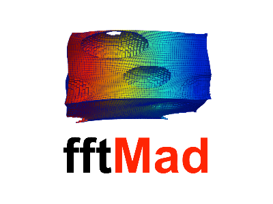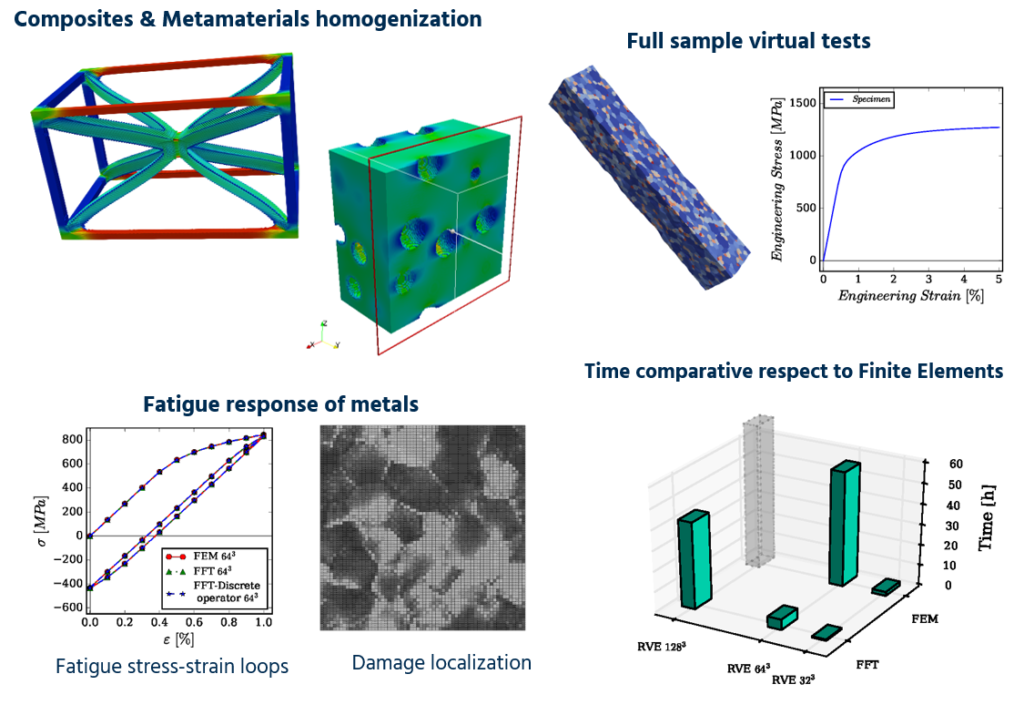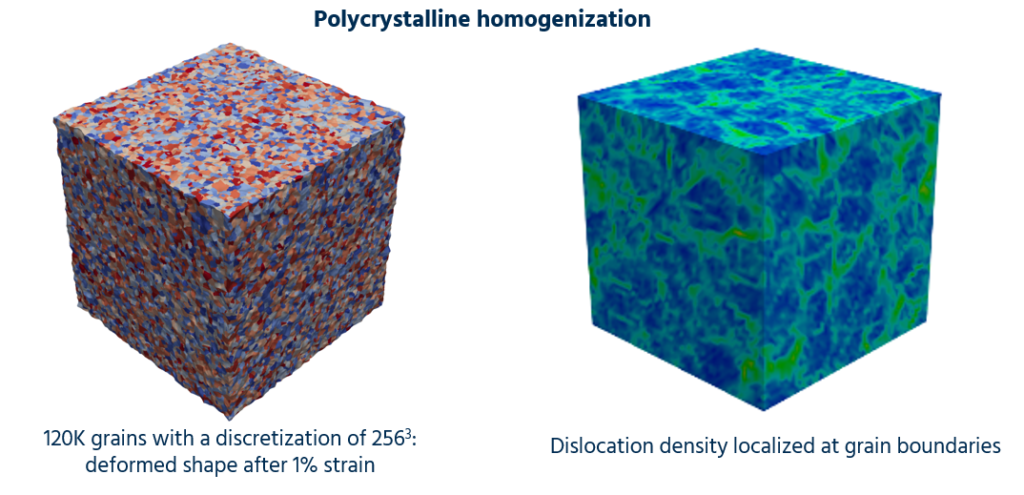Software details
Software authors
Javier Segurado, Sergio Lucarini
Intellectual Property Rights
Copyright © 2012-2021 Fundación IMDEA Materiales and Universidad Politécnica de Madrid. All rights reserved
Transfer opportunity
Software license
Reference
S. Lucarini and J. Segurado., “On the accuracy of spectral solvers for micromechanics based fatigue modeling”, Computational Mechanics, 2018.
Software description
 FFTMAD is a software tool for computational homogenization based on the Fast Fourier Transform. The software aims to obtain the response of any heterogeneous material, as composites, polycrystals or celular materials, by simulating the behavior of a Representative Volume Element of the microstructure. The code is remarkable more efficient in CPU time and memory allocation than Finite Element homogenization.
FFTMAD is a software tool for computational homogenization based on the Fast Fourier Transform. The software aims to obtain the response of any heterogeneous material, as composites, polycrystals or celular materials, by simulating the behavior of a Representative Volume Element of the microstructure. The code is remarkable more efficient in CPU time and memory allocation than Finite Element homogenization.
FFTMAD includes preprocessing tools for microstructure generation of composites and polycrystals. Any constitutive equation can be used for the behavior of the materials by either a material subroutine Abaqus-UMAT or a pre-programmed model as elasticity, hyperelasticity, elasto-plasticity and crystal plasticity. FFTMAD solver is parallelized in GPUs or threads and includes different schemes for linear and non-linear problems. Postprocessing is done using python tools and Paraview.
FFTMAD is programmed as a Python project including NumPy, SciPy, PyEVTK, PyFFTW, and PyCuda libraries as well as home made subroutines in Fortran. A simulation in FFTMAD is performed by simple scripts defining the RVE, materials, load histories and postprocessing options.
FFTMAD capabilities


License types
The three types of licenses available for FFTMAD under GPL and their respective costs include the following:
- Commercial License: lifetime use, 10 hours of technical support, and software updates during the first two years after licensing (2.000 €).
- License to Academic Institution (Research and Educational purpose): lifetime use, 5 hours of technical support (1.000 €).
- Individual Researcher License: lifetime license without technical support and software updates (0 €).
Relevant publications
[1] On the accuracy of spectral solvers for micromechanics based fatigue modeling.
Sergio Lucarini, Javier Segurado
Computational Mechanics, Volume 63, 2019, 365–382. DOI: https://doi.org/10.1007/s00466-018-1598-1
More information
For more information on the capabilities of FFTMAD, see our webinar entitled “FFT based simulations for capturing microstructure effect on the mechanical response of metals”, taught by Prof. Javier Segurado: https://bit.ly/3NXdxrT
Contact
Knowledge & Technology Transfer Department, IMDEA Materials Institute
email: techtransfer.materials@imdea.org
telephone: +34 91 5493422

